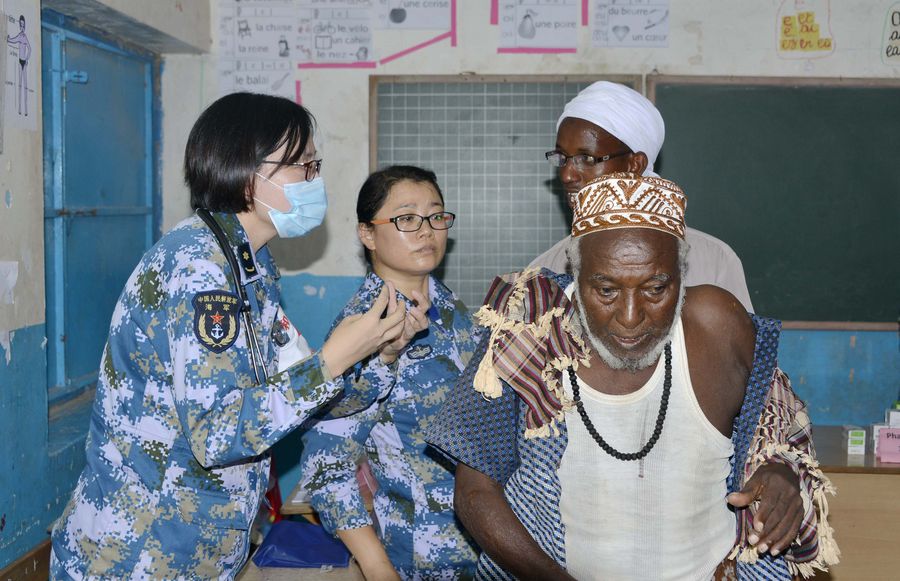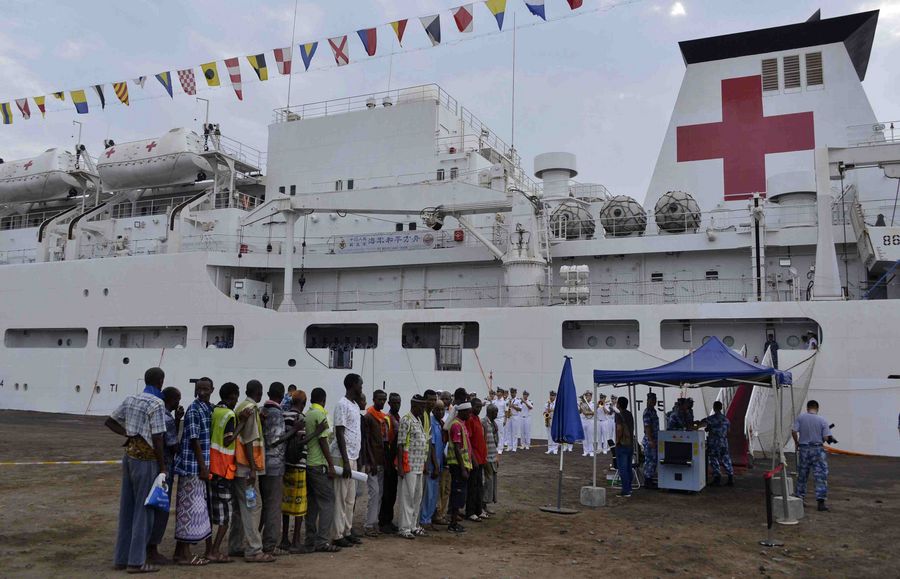
Doctors of Chinese hospital ship Peace Ark provide free medical services to local people in Doraleh, Djibouti, on Aug. 25, 2017. The Peace Ark arrived in Djibouti on Aug. 23 and was expected to carry out a nine-day medical service in Djibouti. (Xinhua/Wang Shoubao)
UN Assistant Secretary-General for Humanitarian Affairs Ursula Mueller has urged the international community to take immediate action to confront the climate crisis that is heavily affecting Djibouti and the rest of Horn of Africa.
ADDIS ABABA, Oct. 6 (Xinhua) -- The UN Assistant Secretary-General for Humanitarian Affairs, Ursula Mueller, has urged the international community to take immediate action to confront the climate crisis that is heavily affecting Djibouti and the rest of Horn of Africa.
Mueller, who is also Deputy Emergency Relief Coordinator in the Office for the Coordination of Humanitarian Affairs (UNOCHA), made the urgent call at the end of a three-day mission to Djibouti, from October 2 to 4, UNOCHA said in a statement on Saturday.
"Climate change is real, and I could see it here. I saw the widespread drought and I met communities that can barely access safe water. They explained to me how this situation is impacting their lives. Djibouti has made virtually no contribution to the global climate emergency, but its population is suffering the consequences on a daily basis," UNOCHA statement quoted Mueller as saying.
Throughout the region, recurrent droughts, water scarcity and other climate shocks have been drivers of high levels of malnutrition, disease outbreaks, food insecurity and displacement, triggering an increase in humanitarian needs, according to UNOCHA.
According to UNOCHA, large areas of Djibouti are exposed to extreme weather conditions, affecting water availability and hygiene conditions, increasing the risk of disease outbreaks. Coupled with high levels of poverty and unemployment, this has left more than 280,000 people, one in three Djiboutians, in chronic levels of food insecurity.

People wait in a queue to receive medical treatment in the Chinese hospital ship Peace Ark in Djibouti, on Aug. 26, 2017. The Peace Ark arrived in Djibouti on Wednesday and was expected to carry out a nine-day medical service in Djibouti. It will then travel to Sierra Leone, Gabon, Tanzania and other countries to provide free medical and humanitarian services. (Xinhua/Wang Shoubao)
"Severe acute malnutrition rates are alarming and considered an emergency according to global standards. In Bondara village, women told me how they were doing whatever it takes to put food on the table for the family, but the frequent droughts are preventing them from doing so," said Mueller.
The Red Sea nation is also a major route of migration with 400 to 600 migrants crossing daily, fleeing the impact of conflict, instability and harsh climate in neighboring countries. The country is also home to some 30,000 refugees and asylum-seekers and an estimated 100,000 migrants.
The deputy humanitarian chief, who also visited one of the refugee villages in Ali Addeh close to Djibouti's border with Ethiopia and Somalia, also met with community representatives and a women's group to learn more about their particular needs.
"The most basic needs are being met. However, there is a lack of livelihood opportunities that would allow the refugees to become self-reliant," she said.
Mueller, who also met with Djibouti's Prime Minister, Abdoulkader Kamil Mohamed, as well as several ministers, also commended government initiatives to support people who are most in need of assistance.
At the end of her visit, the deputy humanitarian chief mainly highlighted that urgent action is required to address the underlying causes of vulnerabilities and get on a path to sustainable development in Djibouti and the region.



